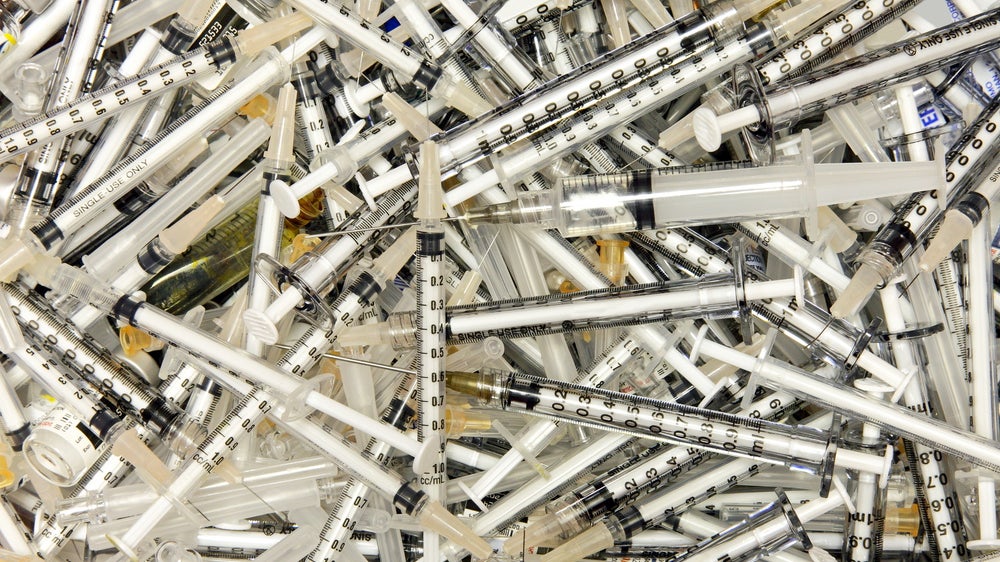Bucks Co. woman on crusade to stop putting used needles in regular trash
 Photo via ShutterStock) " title="needles" width="1" height="1"/>
Photo via ShutterStock) " title="needles" width="1" height="1"/>
Pennsylvania patients whose treatments include self-injections can dispose of their hypodermic needles in the regular trash after packaging in a sealed plastic container.(Photo via ShutterStock)
Nine million Americans have medical conditions such as diabetes that require them to inject medication or use fingersticks at home or work. In most states, it’s perfectly legal to throw those items in the trash as long as they’re not loose — but Doylestown artist Shannon Presti would like to change that.
Presti has multiple sclerosis and every day she injects herself with a drug to fight the disease.
As a Pennsylvania resident, she can get rid of her used needles by sealing them in a plastic container, such as a laundry detergent bottle, and discarding it in her regular trash. But that makes Presti uneasy.
“My fear is that people are going to be exposed to this because it’s not being taken care of properly,” she said. “Many people are just going to do what they want to do with the needles because they either don’t know the safe way to deal with it — or they don’t care.”
Initially, Presti visited local doctor’s offices and hospitals to see if they might be able to dispose of the waste. None were willing to take it on a regular basis. Part of the challenge is that Pennsylvania does not have drop-off collection or other “sharps” program, as New Jersey and Delaware do. Presti could pay to have her waste removed, but it would be an added expense to already costly health care.
“It just seems unreasonable to have that be the only safe way to be able to sleep at night to dispose of these,” she said.
Presti is advocating for a national standard similar to that of New York, where hospitals are required to accept such medical waste as a free public service.
It is unclear how often trash collectors are injured by sharps. But Patty Barthel of the trash collection company Waste Management said needle sticks do happen. The company has numerous trash hauling contracts for local governments. Even if ultimately there is no harm to sanitation workers, follow-up testing for diseases such as hepatitis and HIV can take as long as a year.
In addition to the required duct tape seal, Barthel recommends placing the container in the center of the trash bag to further insulate the items. One potentially dangerous mistake residents can make is packaging up their sharps properly, but placing the container in the recycling bin. Although the materials are of the type that usually can be recycled, medical sharps from homes are sent directly to the landfill to avoid further contact with people.
“It really only takes a minute and a little common sense for residents to do the right thing and protect our employees by creating barriers between any type of waste that could provide an injury,” said Barthel.
Until Presti makes progress on the regulation front, she said she might try her hand at doing something creative with her medical waste and transform it into some type of art. Safety will come first.
WHYY is your source for fact-based, in-depth journalism and information. As a nonprofit organization, we rely on financial support from readers like you. Please give today.

